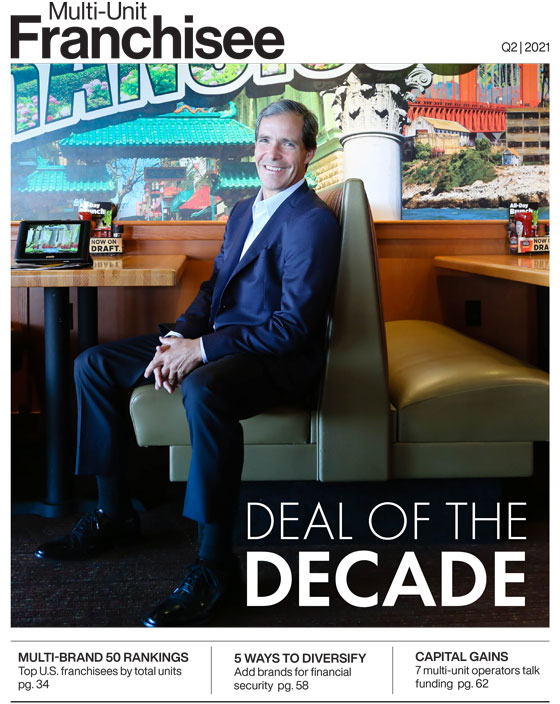Building Sustainable Long-Term Investment Habits For 2021

“Unhinging reason temporarily can sometimes be the only rational response to an insane world.” – Stewart Stafford
It seems almost blissfully quaint at this point: that naive hopefulness the globe entered 2021 with, full of hopes of leaving the trauma and drama of 2020 behind.
Yet by the end of the first month, the U.S. Capitol building had been stormed by an angry mob, former President Trump had been impeached for an historic second time, and an angry social media-inspired group of Main Street traders was wreaking havoc on Wall Street hedge fund titans, forcing liquidation of positions, if not firms.
It seems everywhere we looked the “new normal” was divorced from the reality we all thought we knew. In Alice in Wonderland fashion, it was as if being unhinged and unbalanced was the new normal, and that everything we had learned about what was “supposed” to happen, particularly in terms of stock markets, was irrelevant.
Early in the year, despite the political angst and ongoing Covid-19 counts and shutdowns, global markets continued to rally to new high territory. A variety of events in late January prompted a reevaluation, however, as the “Robinhood, Reddit, TikTok” saga relative to GameStop, AMC Entertainment, and other ’90s favorites unfolded. Our sense is the GameStop turmoil is an iteration of the political angst exposed in recent years by the polarization between those who have benefited from the transition to the information age/globalization and those who have been left behind.
Then too, it is important to acknowledge the context of the statistically large demographic cohorts—Millennials and Gen Z—coming into their own from an employment, purchasing, and influence standpoint. Their primary frame of reference entails significant economic and educational insecurity and seems to have instilled a distrust of organized institutions of any sort, from Wall Street to Capitol Hill and Pennsylvania Avenue. This innate distrust can be easily fueled by social media forums that rapidly accelerate impassioned emotions.
Increasingly ubiquitous access to free trading coupled with stimulus checks and pandemic-inspired excess time to surf exacerbate the whole situation. Time will tell if buying stocks because they are going up (momentum trading), or because one wants to cause harm to someone else (squeeze the shorts) are viable long-term investment strategies. History does not view either strategy kindly for long-term portfolio health. Stepping back from the emotions cascading through the moment, some important insights and lessons can be gleaned for those intent upon building sustainable long-term financial and investment habits.
- The explosion in online trading apps, free trades, and social media–fueled investment advice has really been around only for the past decade or so—aka as the post-global financial crisis bull market (notwithstanding the historically brief drawdown in spring 2020). Investor, app, and underlying firms’ behavior during an extended downturn like that of 2001–02 or during a decade-long flat market remain untested.
- It is imperative that account holders assess how their assets are held: in firm name or in individual name in a separate account. What and who backstops your investment when things get ugly is imperative to know. This would be important, for example, if a firm were to slip into bankruptcy. It never seems likely in a bull market, but the fast and furious trading in GameStop and other assets exposed vulnerabilities in business models when clearinghouses called for more collateral amid the heated trading.
- It’s also important to do some research regarding the financial wherewithal, structure, board composition, and regulatory oversight of the firms that hold your assets. This is similar to ensuring that your insurer has sound financial backing to meet payout requirements in the event of a claim. How is the firm itself financed? What access to additional capital and credit lines do they have? What are their counterparty relationships?
- Investing (versus trading) and building financial wherewithal is typically not viewed as “easy” or “fun.” Many of the trading apps have been “gamified” with emotionally addictive features such as showering confetti when trades are completed. We celebrate the desire to level the playing field for financial education and access, but worry about inadvertent consequences that work against long-term success. Investing is more typically uncomfortable, necessitating buying when others are selling, and divesting when the story seems “best.” In the long run, valuations must be supported by fundamental progress, and disconnects can lead to disappointments. Long-term investing is not unlike long-term health or weight maintenance: no matter how long and hard humankind searches for the “magic bullet” to get rich quick or lose weight easily, there is no substitute for discipline and the hard daily decisions that compound over time to yield results. Then too, just because you can read about how to do an appendectomy or watch a YouTube video showing it doesn’t mean you should do one yourself.
- Amid all the celebratory social media posts about profits, paper and realized, we’ve seen little talk of the taxes that will be owed. Many may be short-term in nature, taxed at ordinary income tax versus long-term capital gains rates.
- Information and wisdom are two different things. The SEC and other regulators have worked hard in recent decades to level the playing field of access to information. But having the wisdom to interpret and deploy that information consistently and over the long haul is another thing entirely.
BOTTOM LINE
Despite the angst-ridden and seemingly unhinged nature of near-term fundamentals, asset prices, and the economic progress that markets began on in 2021, we suspect long-term fundamentals will reward the investors who cleave to the basics of wise financial management. These basics include global portfolio diversification, dollar cost averaging in and out, written investment objectives, and long-term goals.
Carol M. Schleif, CFA, is a senior investment, communications, and business strategy executive. Previously, she was deputy chief investment officer at Abbot Downing, which provides products and services through Wells Fargo Bank. She welcomes your questions and comments at [email protected].
Share this Feature
Recommended Reading:
FRANCHISE TOPICS
- Multi-Unit Franchising
- Get Started in Franchising
- Franchise Growth
- Franchise Operations
- Open New Units
- Franchise Leadership
- Franchise Marketing
- Technology
- Franchise Law
- Franchise Awards
- Franchise Rankings
- Franchise Trends
- Franchise Development
- Featured Franchise Stories
FEATURED IN

Multi-Unit Franchisee Magazine: Issue 2, 2021

$500,000
$150,000





 The multi-unit franchise opportunities listed above are not related to or endorsed by Multi-Unit Franchisee or Franchise Update Media Group. We are not engaged in, supporting, or endorsing any specific franchise, business opportunity, company or individual. No statement in this site is to be construed as a recommendation. We encourage prospective franchise buyers to perform extensive due diligence when considering a franchise opportunity.
The multi-unit franchise opportunities listed above are not related to or endorsed by Multi-Unit Franchisee or Franchise Update Media Group. We are not engaged in, supporting, or endorsing any specific franchise, business opportunity, company or individual. No statement in this site is to be construed as a recommendation. We encourage prospective franchise buyers to perform extensive due diligence when considering a franchise opportunity.